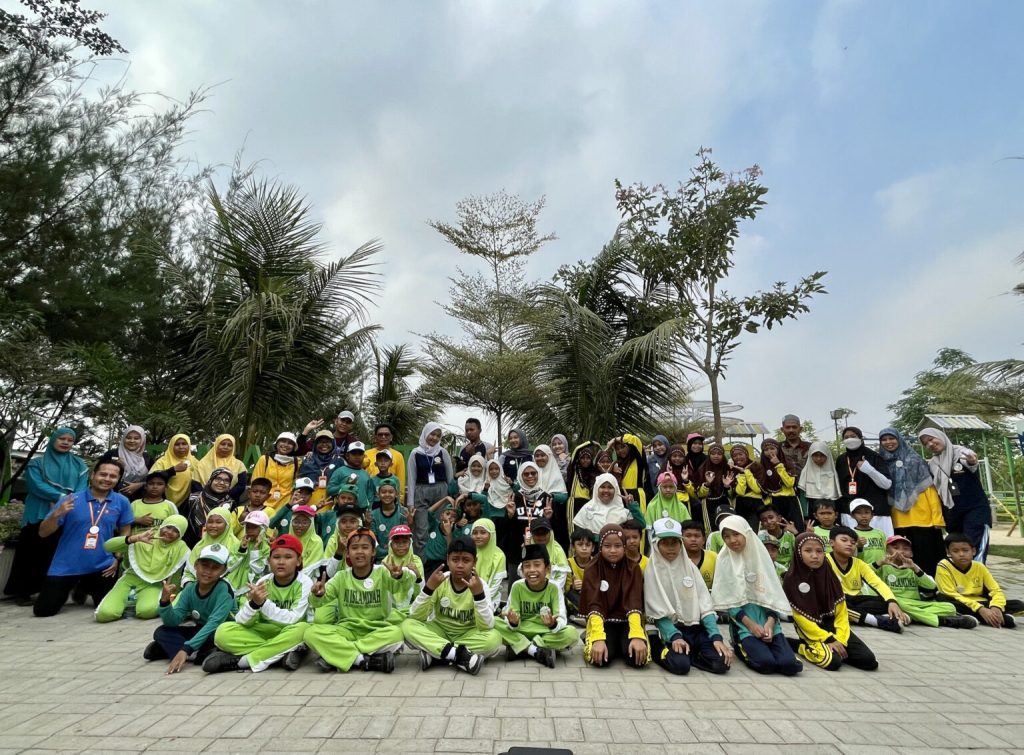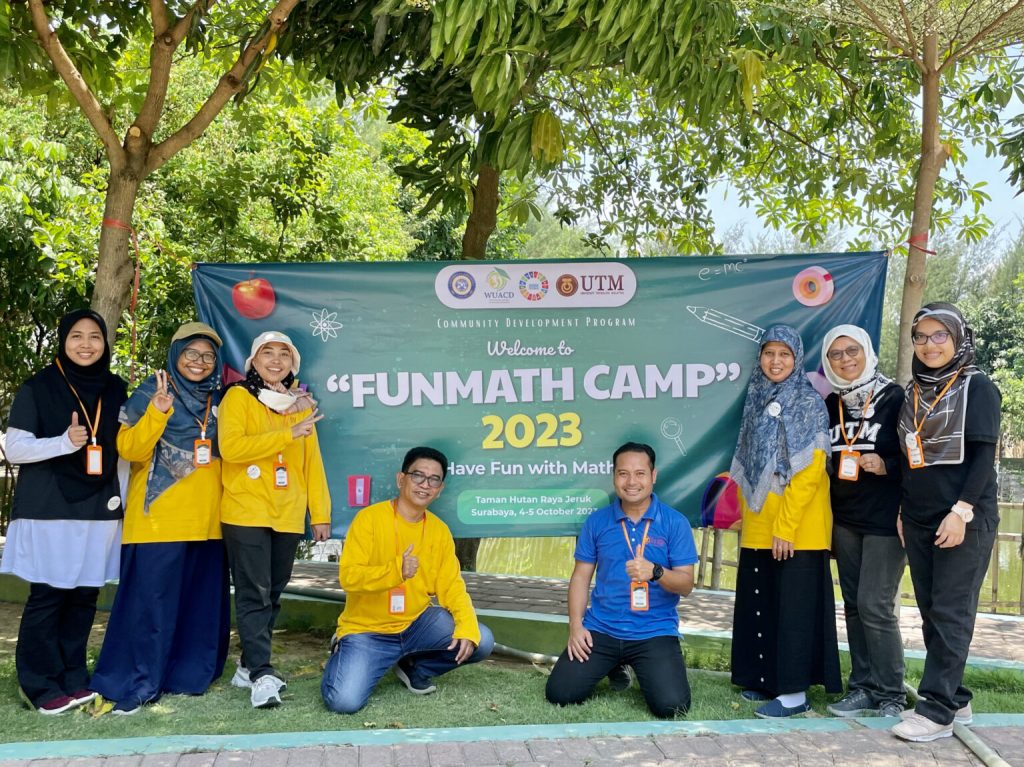For many individuals, mathematics remains a daunting subject, often associated with numbers, calculations, and intricate formulas. Such perceptions hinder a person’s ability to comprehend mathematical principles, despite its pivotal role in various aspects of life. A foundational understanding of mathematics is indispensable for numerous fields of study, including physics, engineering, and economics. Cultivating an early love for mathematics is crucial to instill enthusiasm for learning the subject.
In collaboration with Universiti Teknologi Malaysia (UTM), the Mathematics Study Program at the Faculty of Science and Technology (FST) Universitas Airlangga (UNAIR) organized the FunMath Camp 2023 initiative. This activity is part of the Airlangga Grant program, funded by the World University Association for Community Development (WUACD). Taking place on October 4-5, 2023, the camp welcomed 50 fourth and fifth-grade students from three elementary schools in Surabaya: MI Islamiyah, MI Nurul Hidayah, and MI At-Taufiq at Taman Hutan Raya Jeruk. The organizing committee comprised lecturers and students from UNAIR and UTM Mathematics.
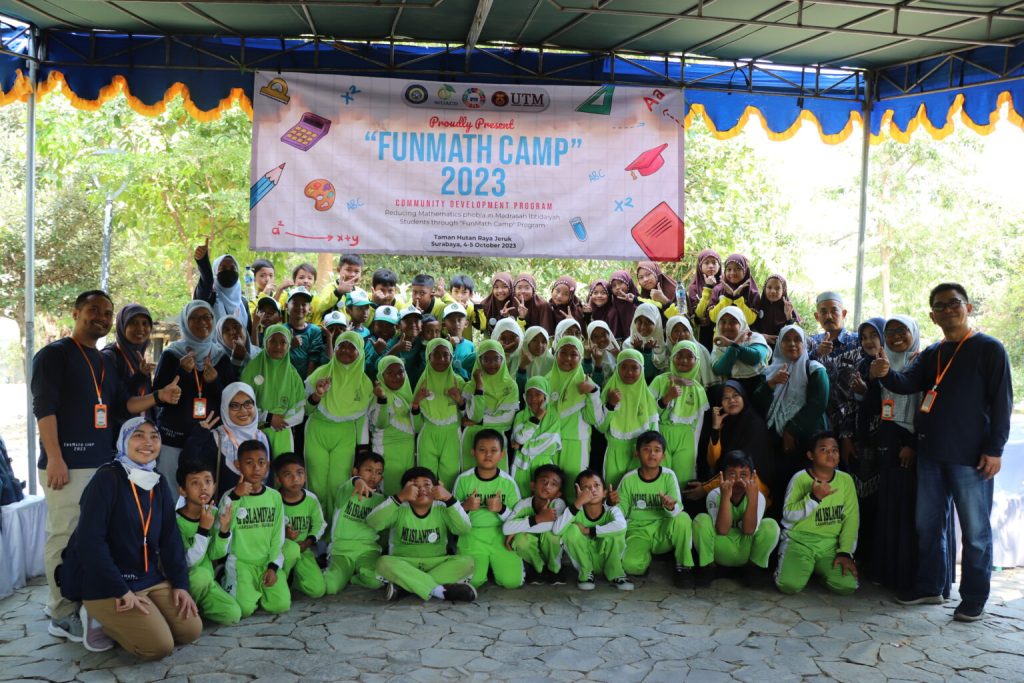
This initiative is organized as a series of agendas, all centered around a common theme: enjoyment in the study of Mathematics. Dr. Miswanto, speaking on behalf of the UNAIR committee team, expressed the aspiration, “The hope is that younger siblings who currently harbor a dislike for Mathematics will develop an affinity for the subject, and those who already have an interest will deepen their enthusiasm.” Mr. Fauzi, representing the accompanying teachers, echoed this sentiment, stating, “We aspire that this event will facilitate children in learning Mathematics in an enjoyable manner, enabling them to share this positive experience with their peers at school.”
The FunMath Camp spanned two days, encompassing six sub-activities: 1) Motivation, 2) Math Recreation, 3) Math Hunt, 4) Math Stage, 5) Mini Olympiad, and 6) Math Creation. The event commenced with an Ice Breaking session, where attendees were organized into five groups, consisting of students from three different schools. This agenda was overseen by Nashrul Millah, a lecturer in Mathematics at UNAIR, who served as the host for the 2023 FunMath Camp activity. Each group was accompanied by two supporting assistants from among the students.
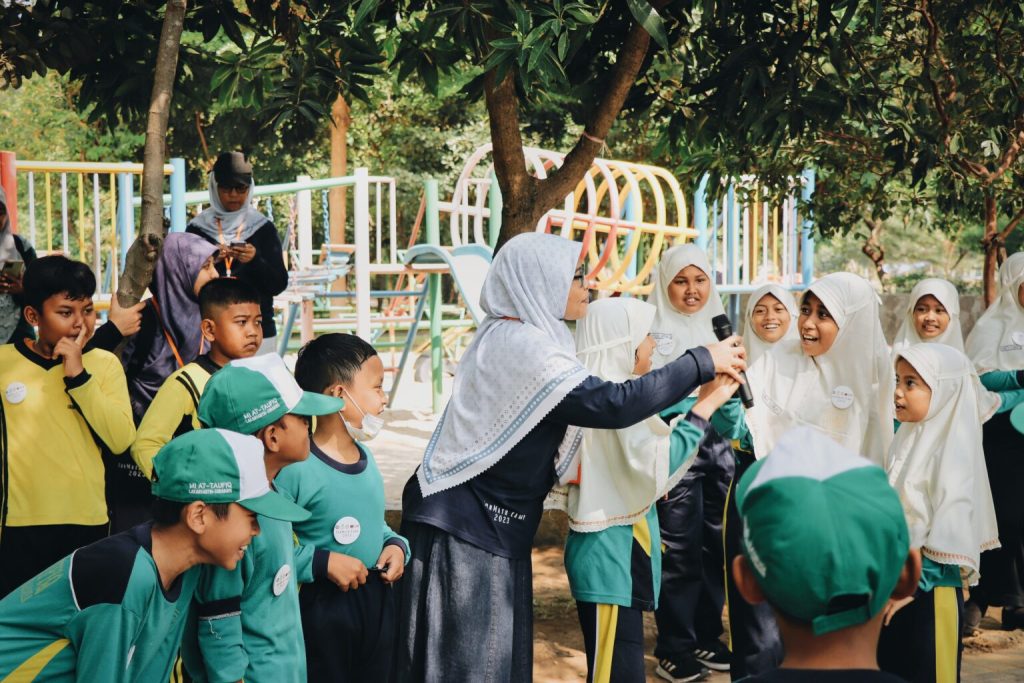
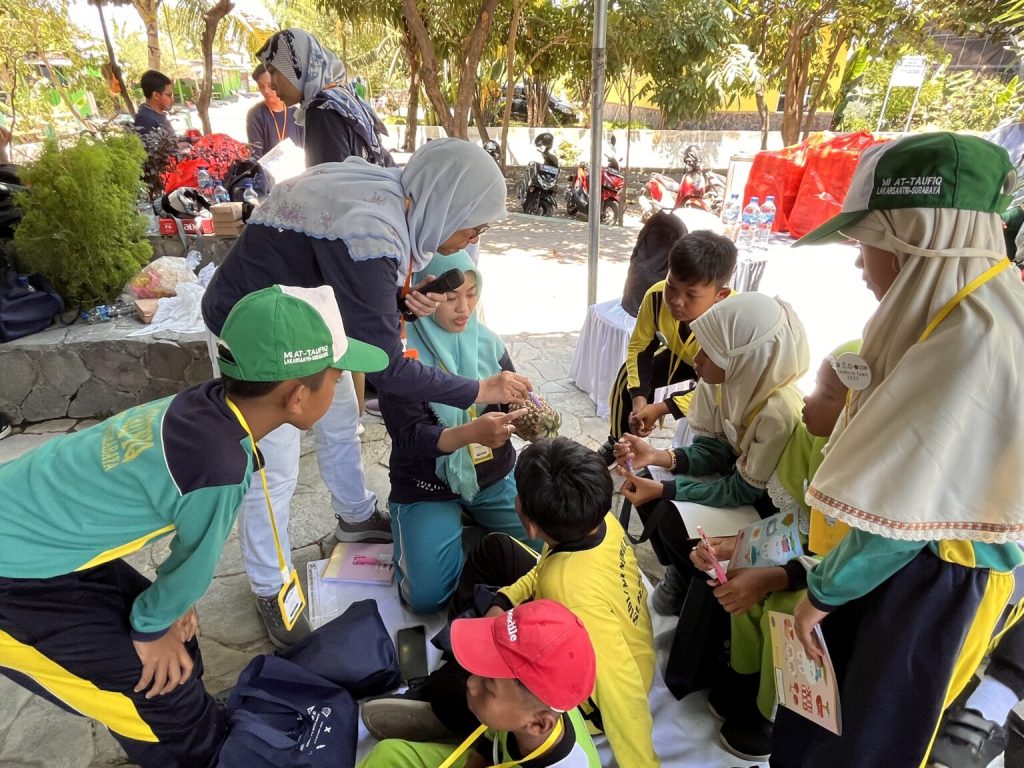
During the initial sub activity, Motivation, participants immersed themselves in exploring the diverse applications of Mathematics in everyday life. The session was expertly facilitated by Prof. Dr. Nor Haniza Sarmin, a distinguished representative of UTM’s esteemed Mathematics academics. The program smoothly transitioned into Mathematics Recreation, under the guidance of Dr. Hazzirah Izzati from UTM, wherein participants actively engaged in solving riddles and magic intricately connected to mathematical concepts. Concluding the itinerary for the first day was the Mathematics Hunt, expertly directed by Siti Zahidah from UNAIR. In this activity, students were prompted to strategically solve arithmetic questions strategically placed around the park, with each post presenting a unique challenge containing concealed information for participants to uncover.
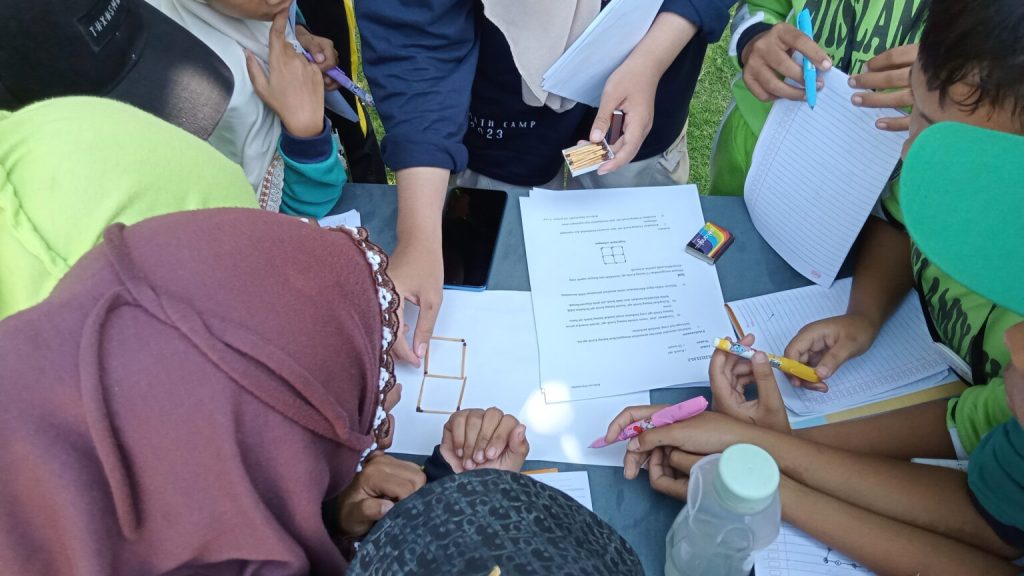
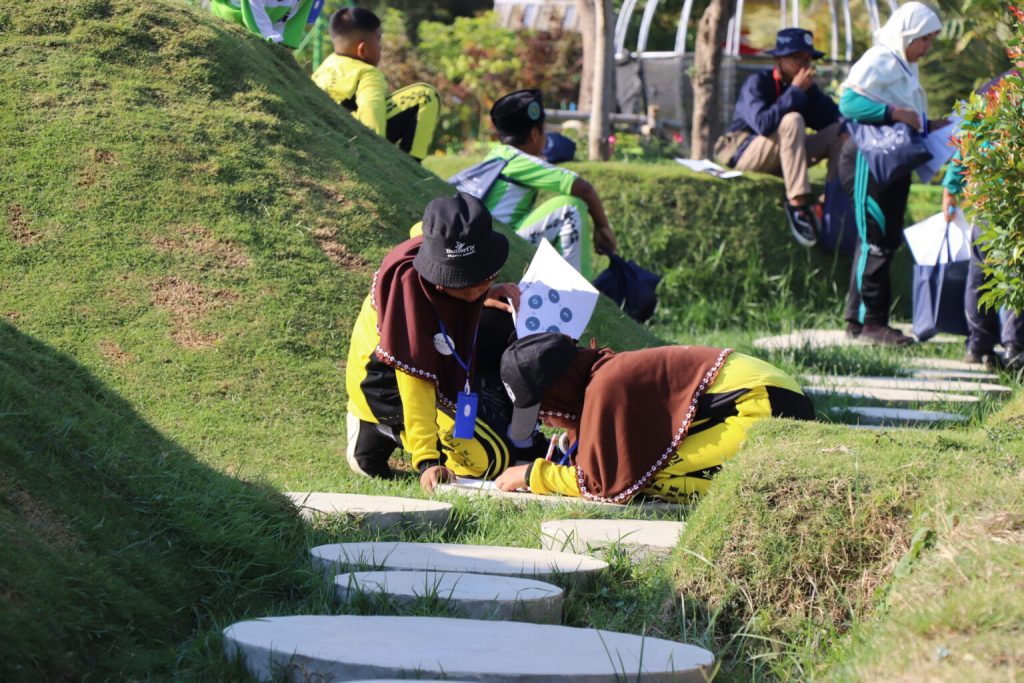
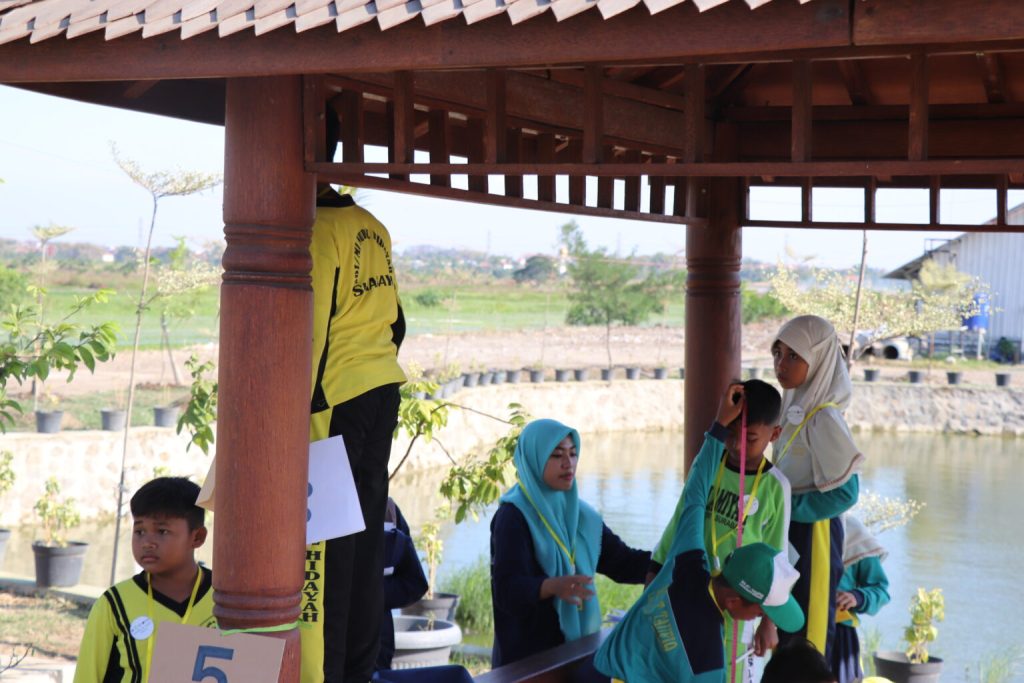
The second day commenced with an ice-breaking session involving gymnastics accompanied by the musical piece ‘Sleepy Mumia’. Subsequently, a Mathematics Stage, led by Athirah, a UTM doctoral student, showcased participants’ performances integrating mathematical components into singing, dancing, theatrical acts, poetry, and rhymes. The Mini Olympiad, guided by Dr. Miswanto of UNAIR, centered on reasoning and logic tasks. The Mathematics Creation activity, overseen by Dr. Najib from UTM, allowed participants to design a dream school using mathematical objects.
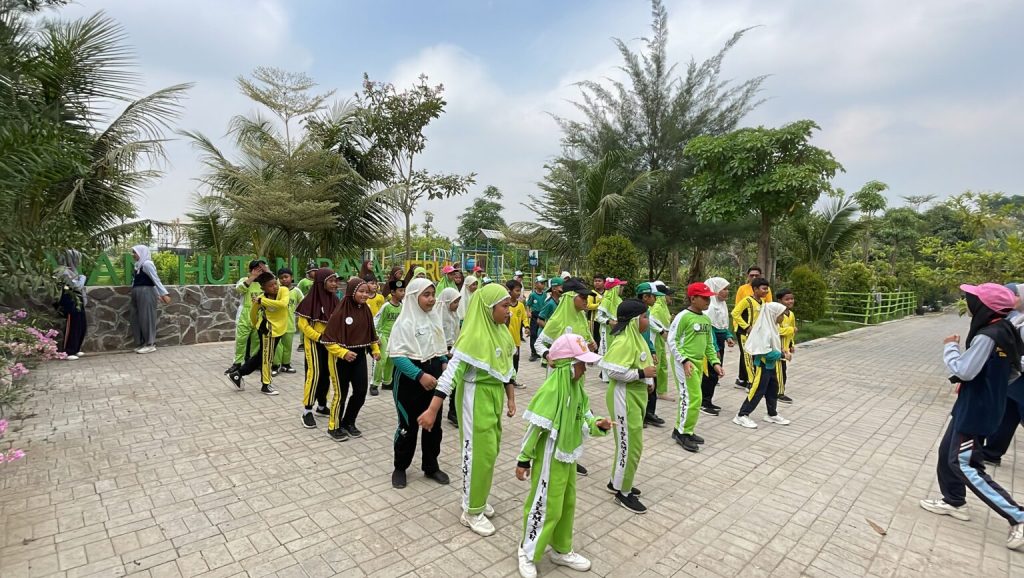
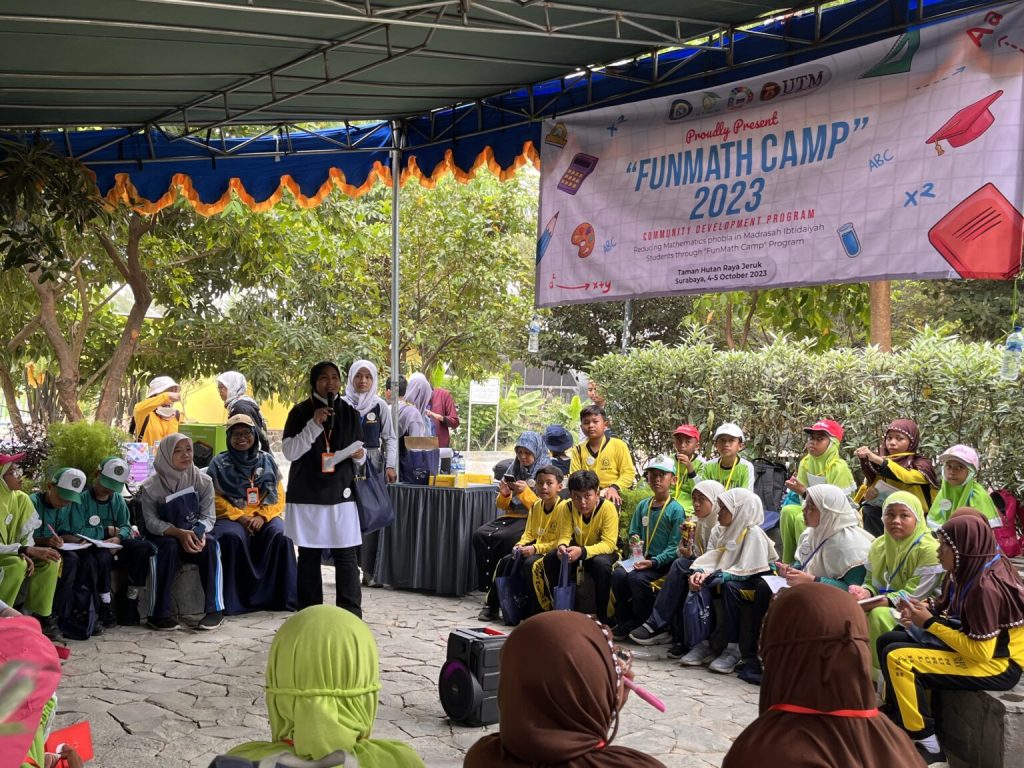
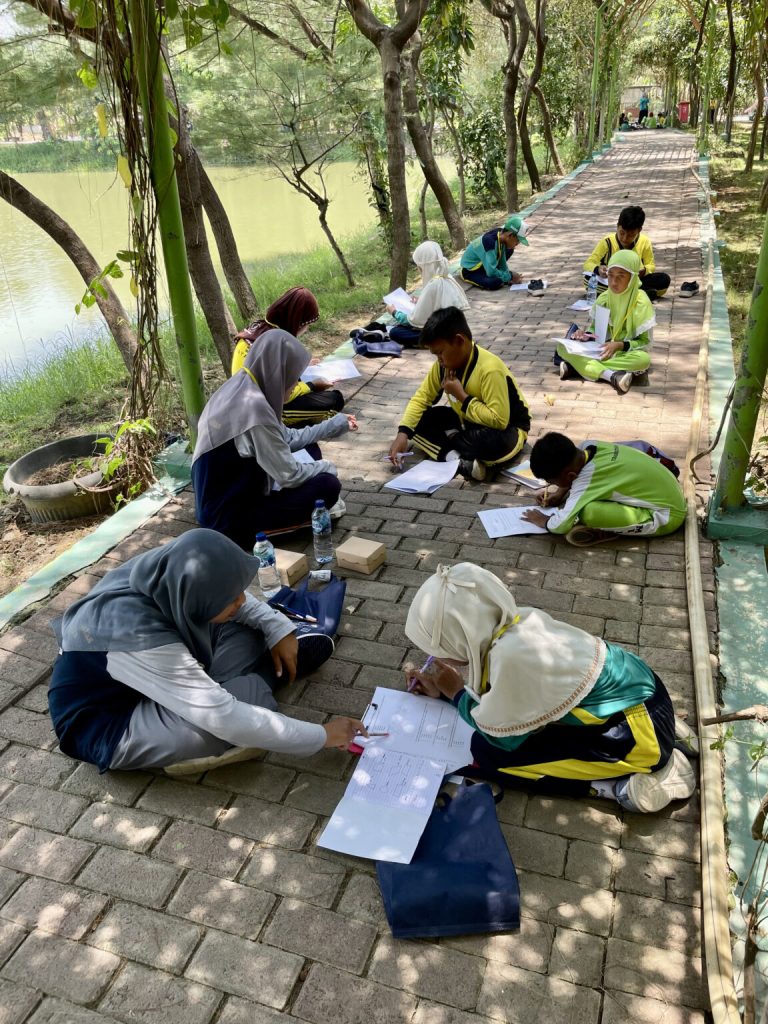
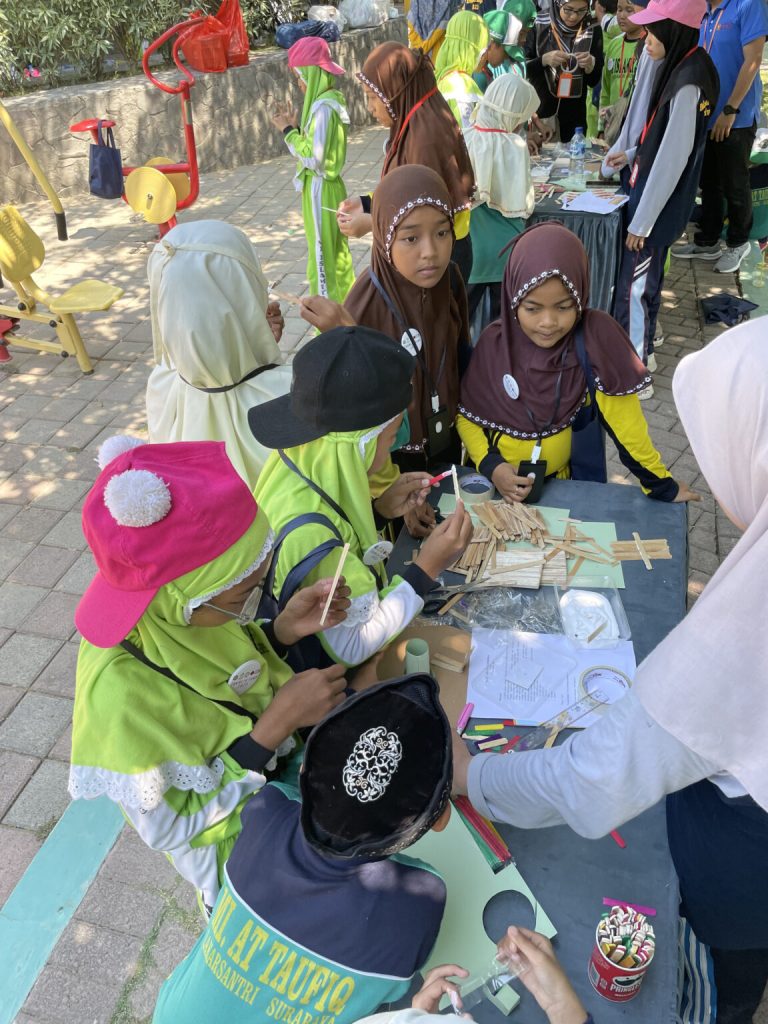
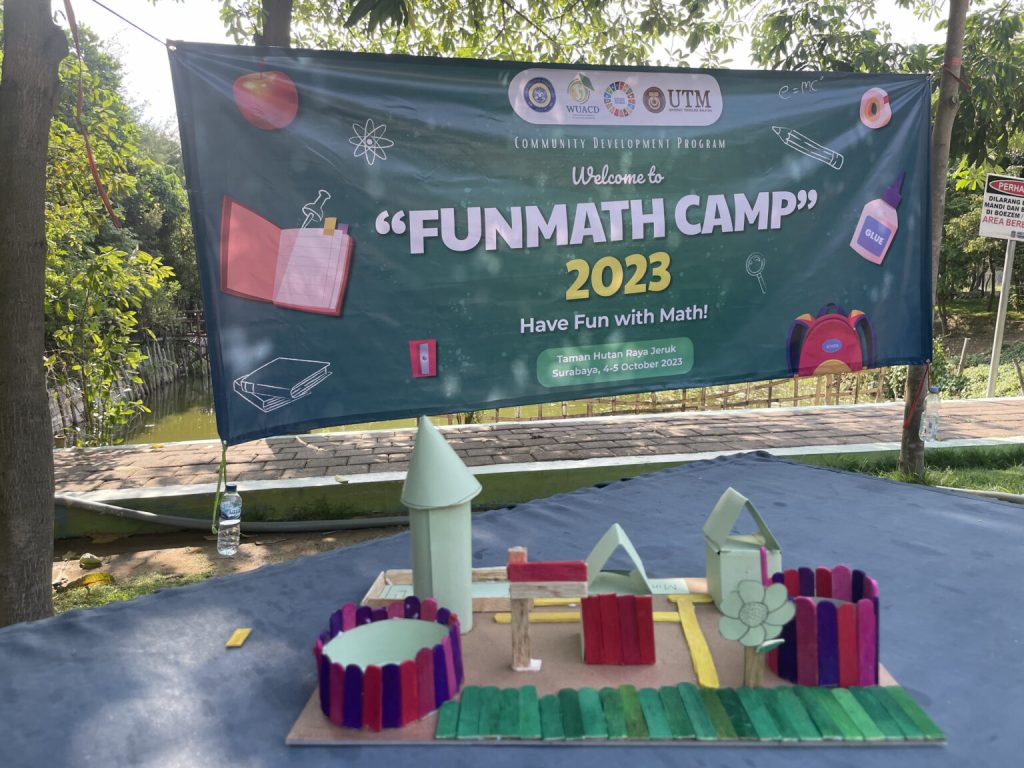
The findings of the pretest and posttest indicate that the two-day exercise was successful in changing students’ attitudes toward mathematics. Students are no longer terrified of math; they believe it is enjoyable. This can also be evident in the growing antipathy of participants at all stages of the agenda. This minor move is intended to contribute to the Sustainable Development Goals (SDGs), particularly SDG 4 on innovative education and SDG 17 on renewing global collaborations.
